“Safety is not a privilege, it’s every child’s right!”
In India, one child becomes a victim of sexual abuse every 8 minutes.
Behind every headline is a classroom, a playground, a home, spaces that were meant to be safe. That’s why the Protection of Children from Sexual Offences (POCSO) Act, 2012 exists. Yet, laws alone aren’t enough. That’s why it becomes crucial to equip parents, teachers, NGOs, and even children with the right skills to prevent, report, and respond to abuse, with awareness, care, and courage, through POCSO training.
But before we talk about the POCSO Act & POCSO training, let’s understand how it all began.
What existed before the POCSO Act, 2012?
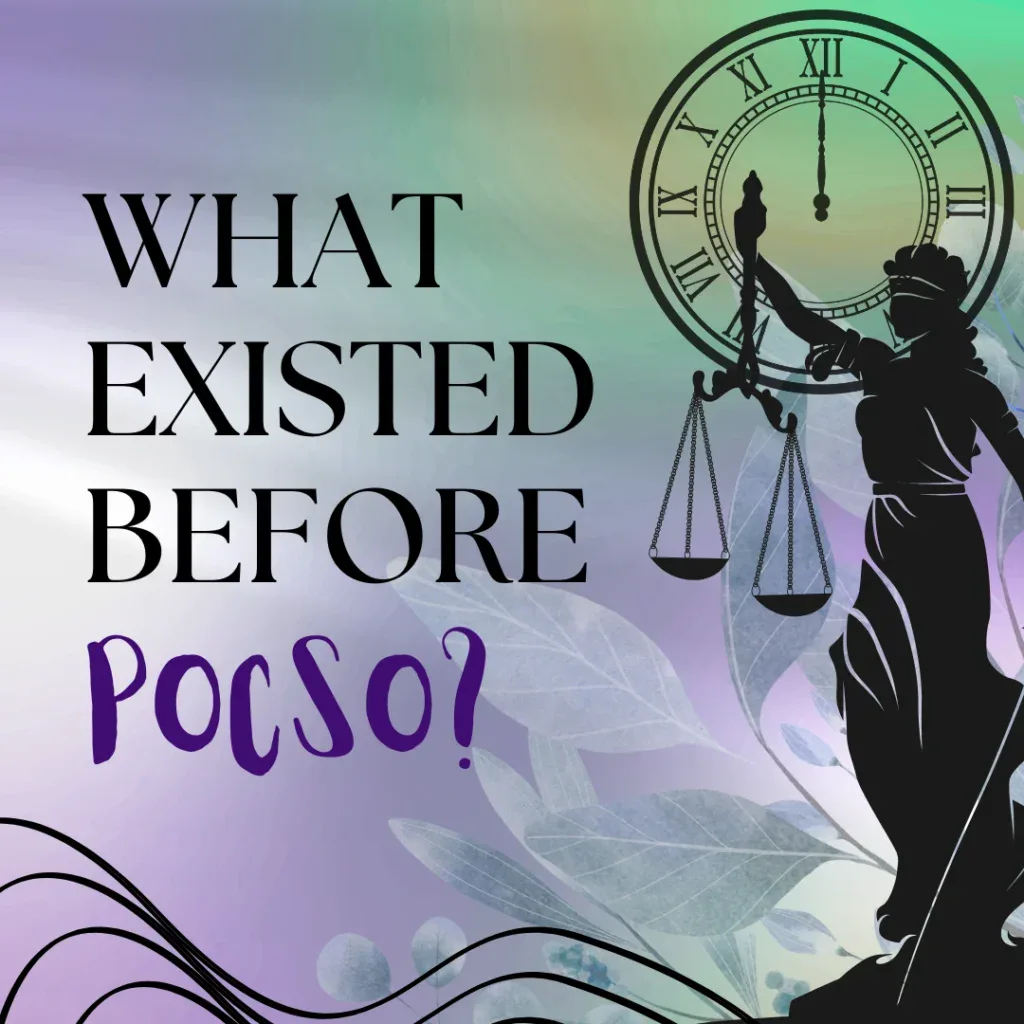
India’s Constitution gave special rights and protections to children under Chapter III (Fundamental Rights). Over the years, India also promised to protect children internationally by signing important agreements. But despite all this, India didn’t have a special law just for protecting children from sexual abuse.
What existed before was inadequate-
Indian Penal Code (IPC)
Before the POCSO Act, child sexual abuse was handled under general laws, mainly the Indian Penal Code, which wasn’t enough. Here’s why:
1. Section 375 defined rape but only as peno-vaginal intercourse against women; it excluded boys, other forms of sexual assault, and non-penetrative abuse.
2. Section 354 punished “outraging a woman’s modesty”, but didn’t define what “modesty” meant or offer protection to male children.
3. Section 377 criminalized “unnatural offences,” including same-sex acts, which created confusion and further stigma around reporting child sexual abuse, especially involving boys.
These laws were limited, gender-biased, and failed to cover the full range of abuses children could face.
Goa Children’s Act, 2003
Later in 2003, Goa took the lead with its own state-level law, the Goa Children’s Act, 2003. It was one of the first laws in India to:
- Define child sexual abuse clearly
- Use gender-neutral language (protecting boys and girls)
- Make reporting abuse mandatory
- Set up systems to monitor children’s homes, shelters, and institutions
It also encouraged awareness and prevention, inspiring later laws like the POCSO Act.
But it had one major limit: It applied only in Goa, leaving the rest of India without a unified, enforceable law.
And finally, the POCSO Act, 2012 was born.
Meet POCSO Act : India’s Promise to Every Child
On November 14, 2012, the Government of India took a historic step to safeguard its youngest citizens by enacting the Protection of Children from Sexual Offences (POCSO) Act, 2012.
The Act defines a child as any person below 18 years. It covers all forms of sexual abuse, including penetrative and non-penetrative sexual assault, sexual harassment, and child pornography. It also recognizes “aggravated sexual assault”, which applies in cases where the child is mentally ill or the perpetrator is in a position of trust, such as a parent, teacher, doctor, or police officer.
Breaking Old Chains: How POCSO Act Changed the Game?
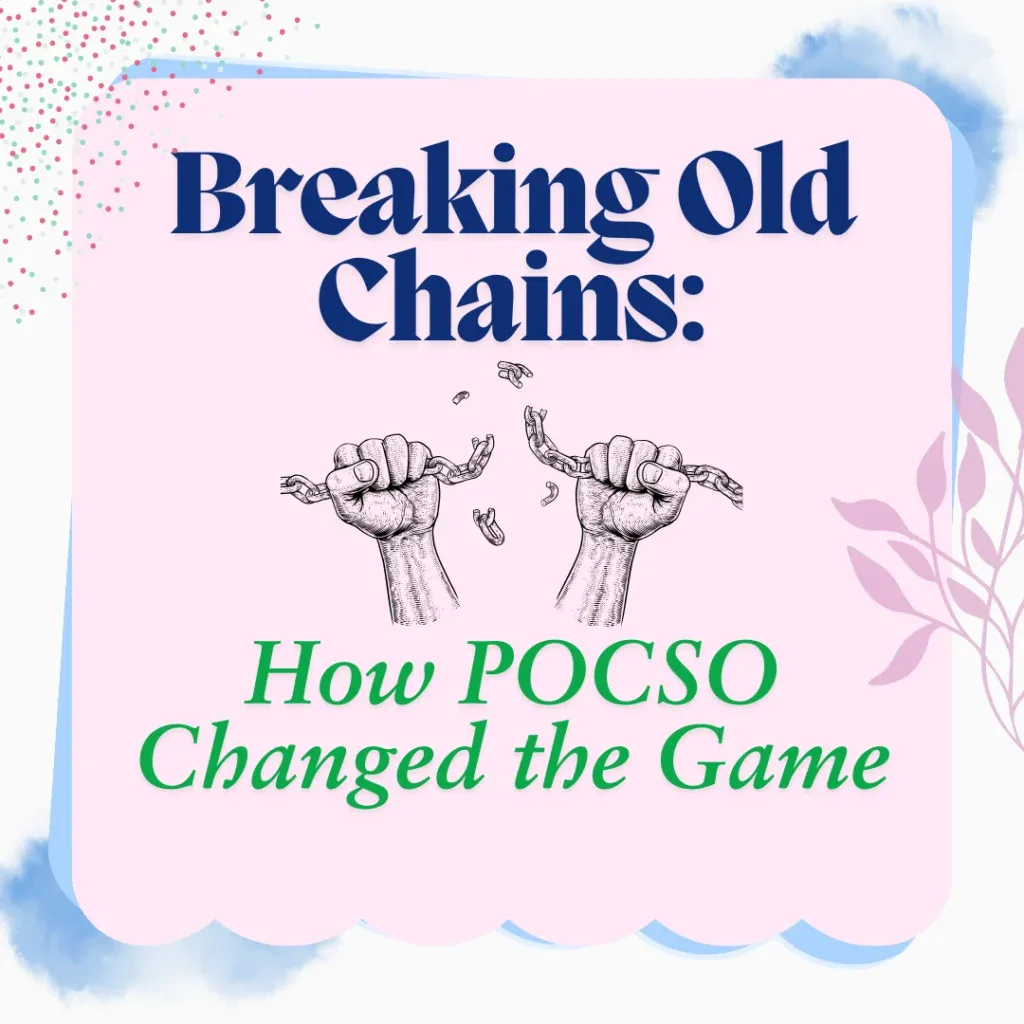
The POCSO Act didn’t just introduce new laws; it transformed how India responds to child sexual abuse. By placing the child’s well-being at the center of every step in the legal process, it challenged outdated practices and set a new benchmark for justice. The goal? Justice served with dignity, speed, and care.
Key Features of the POCSO Act:
- Applies to all children under 18, regardless of gender
- Clearly defines and categorizes various forms of sexual offences
- Emphasizes a child-friendly legal process- from reporting to trial
- Establishes Special Courts for swift and sensitive handling of cases
- Prevents re-victimization by limiting repeated questioning and ensuring respectful treatment
- Ensures children feel safe and supported while sharing their experiences and testimony
- Makes it mandatory for anyone aware of abuse to report it
- Holds not only abusers but also those who assist, conceal, or protect them legally accountable
Inside the POCSO Revolution: What Everyone Should Know
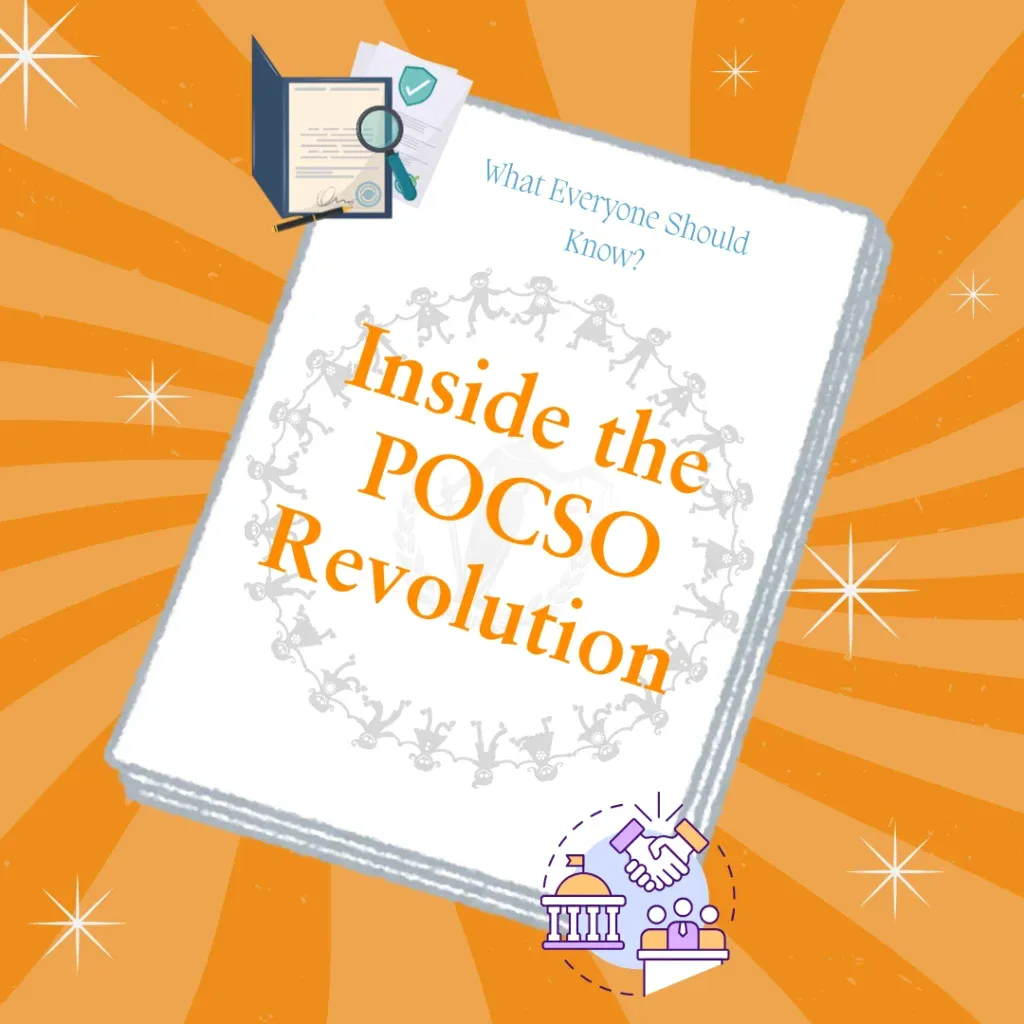
The POCSO Act, 2012, is more than just a law for punishment. It’s about prevention, protection, and proactive response. Here’s a simplified overview of its most crucial areas-things every parent, teacher, and responsible adult should understand:
1- Reporting Abuse
- Must be reported to the police or Special Juvenile Police Unit (SJPU)
- Police must inform the Child Welfare Committee within 24 hours
- All individuals (including teachers, media, and school staff) are obligated to report known or suspected abuse
- What if they don’t?
Failure to report or record a known offence is a punishable act.
2- Medical Examination
- A lady doctor is required for examining a girl child
- A trusted adult must be present during the examination
- Medical findings must be submitted to both the police and the magistrate promptly
3- Special Courts
- Every district must have a Special Court dedicated to POCSO cases
- These courts are specially trained to handle cases with speed and sensitivity
- They can take direct action on complaints or police reports without unnecessary delays
4- Special Public Prosecutors
- The government appoints experienced lawyers (minimum 7 years in practice) to fight cases in these courts.
- They are trained to represent child sexual abuse survivors with care and skill.
5- Child-Friendly Trial Process
- No identity disclosure: A child’s name, school, or photo cannot be shared publicly
- No aggressive questioning: Courts ensure respectful, non-traumatic interactions
- Separate court entrances for the child and the accused
- Children must not be detained overnight at police stations
- In-camera trials: Closed to the public to ensure a safe, private environment
- Use of video links, curtains, or one-way mirrors to shield the child from directly facing the abuser
- Special educators or interpreters provided for children with disabilities
6- Timeline for Justice
- The child’s statement must be recorded within 30 days
- The entire trial should ideally conclude within one year
- Any delays must be explained in writing by the court
They ensure that when a child gathers the courage to speak up, they’re heard with compassion, shielded from further trauma, and guided firmly toward justice.
Punishments under POCSO Act
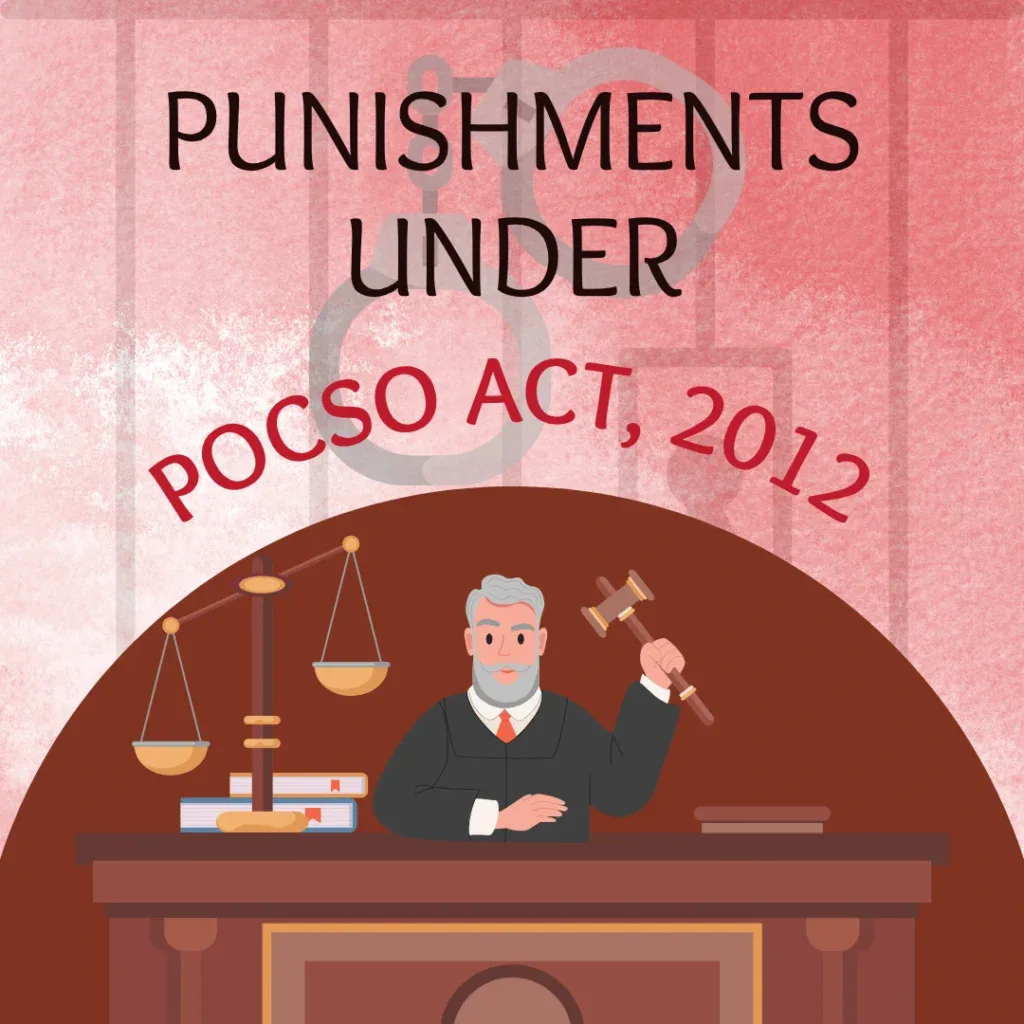
The POCSO Act is built on the principle of zero tolerance. The law ensures that justice is delivered with the seriousness it deserves. Depending on the nature and severity of the crime, punishments under POCSO can range from:
- Minor offences: Punishment may be up to 3 years.
- More serious offences: Punishment may range from 3 years to life imprisonment.
- Gravest offences: May result in the death penalty
The law doesn’t stop at punishing completed crimes. It also takes a firm stand against any form of involvement in abuse-even if the act was only attempted, or if someone helped make it happen.
Abetment and Attempt: The law makes it clear: even trying to harm a child, or helping someone else do it, is not spared.
- Abetment (instigating, aiding, or conspiring to commit an offence) is punished with the same sentence as the person who commits the crime.
- Attempts to commit any offence are punished with up to half of the maximum punishment.
Failing to Act Is Also a Crime: POCSO doesn’t just punish abusers. It also holds adults accountable for inaction.
- Not reporting a known offence or recording an offence: 6 months to 1 year imprisonment and/or fine
- Failure to report by institution heads or companies: punishment of up to 1 year + fine
- False complaint with malicious intent (against an adult): punishment of 6 months and/or fine
- False complaint against a child: 1 year imprisonment and/or fine
- Disclosure of a child’s identity by the media: punishment of 6 months to 1 year + fine
- No civil or criminal liability applies if someone reports a case in good faith, even if it later turns out to be false.
- Child fails to report own abuse: Not punishable, because the law understands the trauma and silence that often surrounds such experiences.
Knowing these punishments is not about fear; it’s about responsibility.
Real Stories, Real Change: Cases That Shaped POCSO
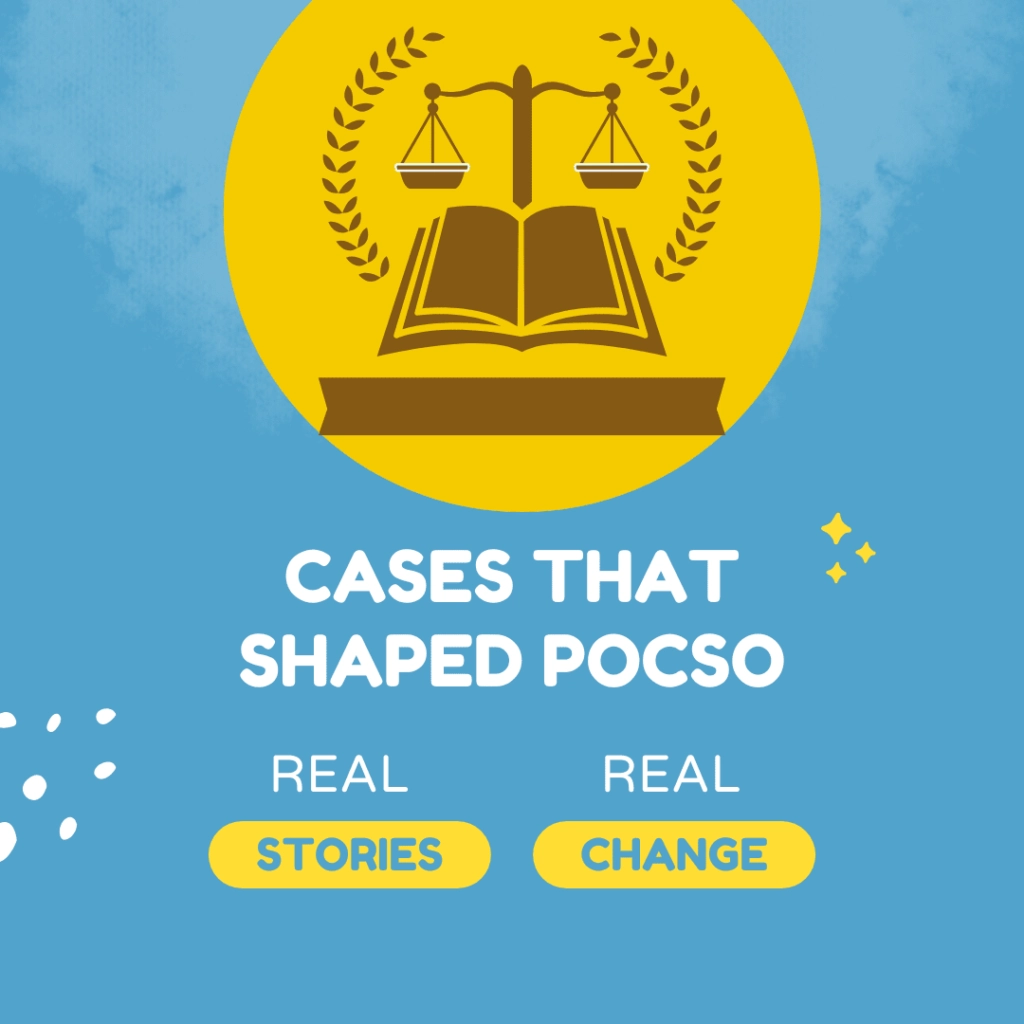
Just like everything else built to last, the POCSO Act didn’t emerge overnight, it grew stronger case by case. Behind every legal provision lies a real child’s story, a painful truth that forced the system to change. Here’s how the courts helped shape what POCSO is today.
1. Jarnail Singh v/s State of Haryana (2013):
What Happened: A minor girl was abducted and gang-raped.
What Changed: The Court ruled that a minor’s consent is legally invalid. Even if a child says “yes,” the law says they’re too young to choose. The case also reinforced proper age verification procedures under Juvenile Justice rules, a critical step in securing justice.
2. Attorney General for India v/s Satish and another (2021):
What Happened: A 12-year-old girl was assaulted under the pretext of being given a fruit.
What Changed: The Court stated that even minimal physical contact with sexual intent counts as assault under POCSO. It’s not about how much harm was done; it’s about why it was done.
3. Alakh Alok Srivastava v/s Union of India and Others (2018):
What Happened: A PIL was filed after the brutal sexual assault of an eight-month-old baby.
What Changed: The Supreme Court acknowledged that Fast and sensitive justice is not optional; it’s essential. It issued key reforms:
– Special POCSO Courts in every district
– Fast-tracking of trials
– Training for judges to handle child trauma sensitively
These are not just court cases. They are stories of pain that led to progress.
Where Safety Begins: Homes, Schools, and the Fight Against Abuse
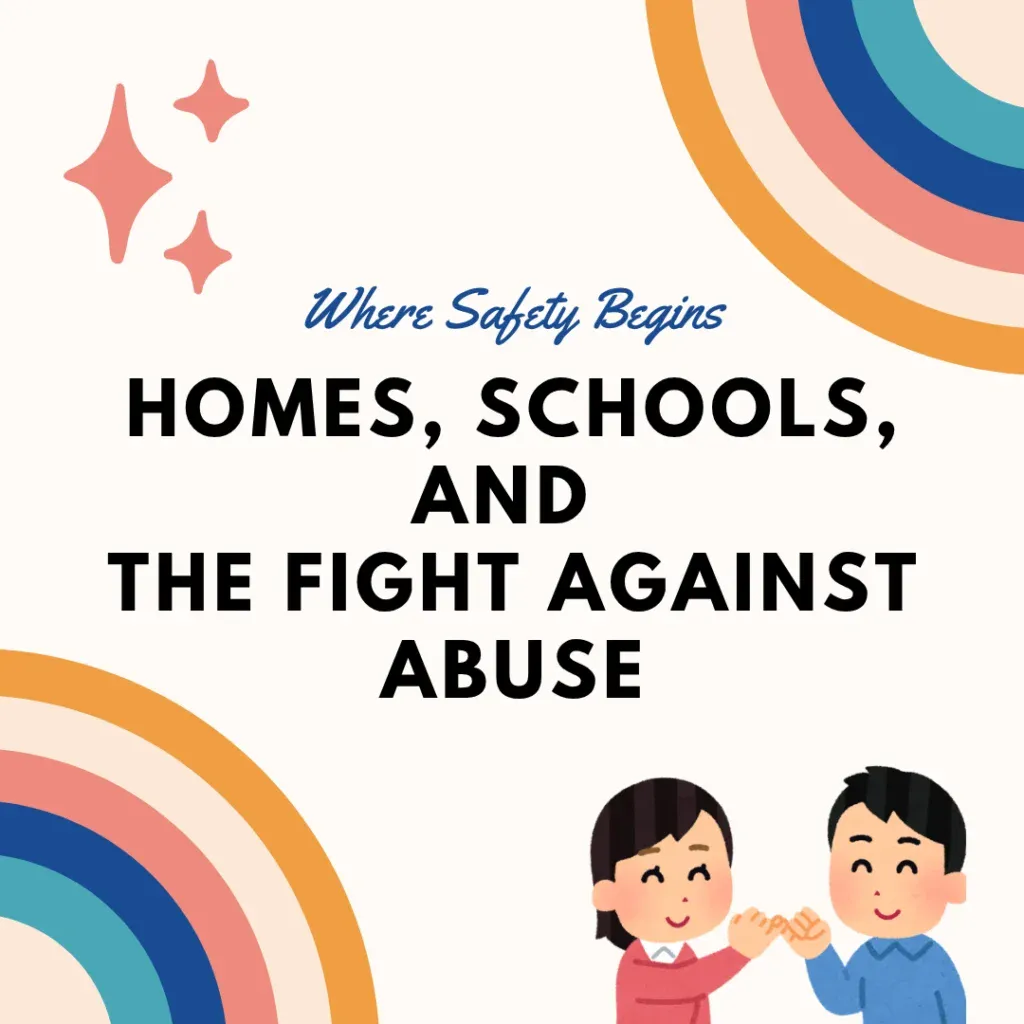
After understanding the law, it’s time to look inward, into the spaces where children grow, laugh, learn, and trust. Because safety begins in classrooms, morning assemblies, kitchen tables and bedtime talks.
Parents: The Heart of Preventive Action
Long before a child understands the law, they understand love, trust, and comfort. That’s why parents play the most critical role of all in prevention.
- Open Conversations: Children need to know that no topic is off-limits, especially when it comes to fear, discomfort, or bad experiences. A child who can talk is a child who can be helped.
- Body Autonomy and Empowerment: Teach children that their body belongs to them. That it’s okay to say “no.” That if anything feels wrong, they have every right to speak up and be believed.
- Staying Informed and Involved: From screen time to sleepovers, modern parenting means knowing who your child is with, online and offline, and guiding their tech use to guard against abuse.
Handing Over the Mic to Educators:
Teachers are more than academic guides; they are protectors and the first people outside the home whom a child trusts. In the fight against abuse, their role is critical:
- Educate: Teach children about boundaries, consent, and body autonomy in age-appropriate ways.
- Create Safe Spaces: Make school a place where children feel safe to speak up.
- Recognize & Report: Know the signs of abuse and report them immediately. Under POCSO, silence is not an option.
- Model Respect: Treat every child with dignity; children mirror what they see.
The POCSO Act can only stand strong when the pillars of family and school hold it up together.
The Roadblocks: What’s Holding Us Back?
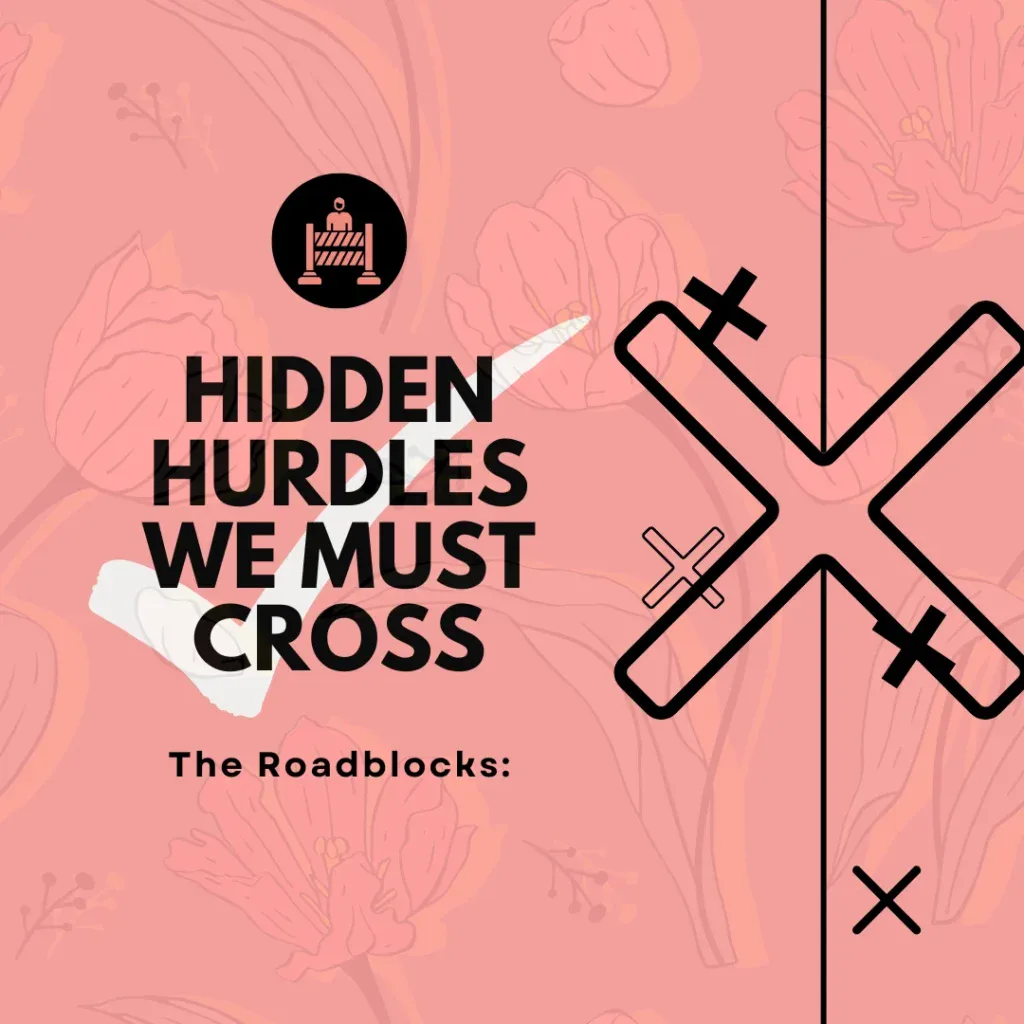
After understanding POCSO and the critical roles of parents and educators, we must face the truth, protection on paper means nothing without action in real life. To truly protect children, we must go beyond knowing and start changing.
What stands in the way?
- Lack of Awareness: Many communities still don’t recognize abuse or know children’s rights. Even teachers, police, and doctors may act with good intentions but lack the training to respond effectively.
- Barriers to Reporting: Children often stay silent, out of fear, shame, or the belief that no one will listen. The stigma around abuse traps them in invisible cages of pain and secrecy.
- Shortage of Trained Responders: A missed sign, a poorly handled disclosure, or an insensitive legal process can retraumatize a child. Without proper training, even help can harm.
This is why POCSO training programs are so crucial.
From Awareness to Action: Steps We Must Take
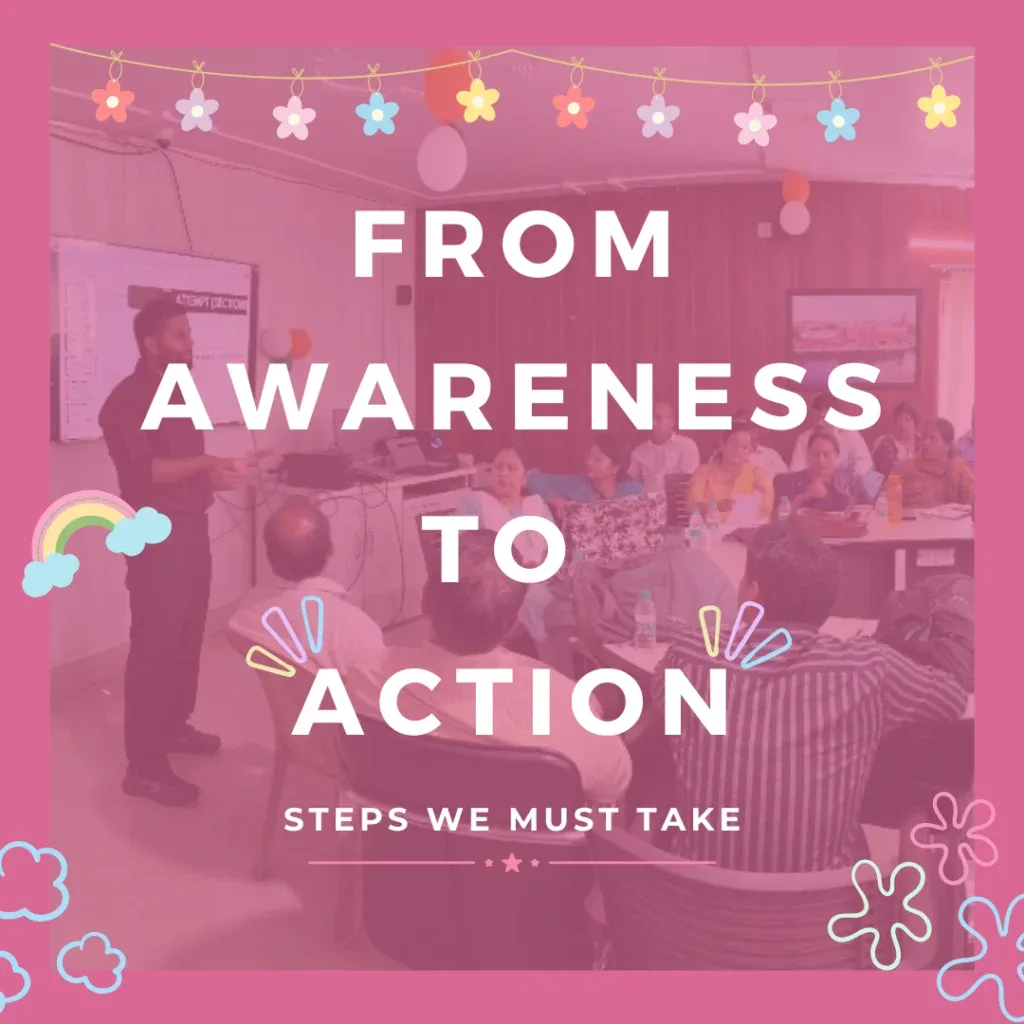
“I know there are good people out there, but I am already in an imaginary cage I created… and I don’t know how to get out of it.”
— A survivor
These invisible cages, built from fear, silence, and shame, can only be broken with empathy, awareness, and action. Yet, many adults, including parents, teachers, doctors, even children still don’t fully understand what the POCSO Act protects, or how to use it.
So, what must change?
Every adult who touches a child’s world must be trained, because protection is their responsibility. POCSO training isn’t optional; it’s essential. Because:
– Schools need educators who can recognize abuse and create safe spaces.
– Homes need parents who talk openly, teach boundaries, and listen without judgment.
-Systems need police, doctors, judges, and counselors who are trained in child-sensitive, trauma-informed care.
– Communities need awareness of online safety, and clear mechanisms for reporting abuse.
– Institutions need accountability for those who fail to act.
No law can protect a child on its own. It takes informed hearts and trained hands, in homes, schools, clinics, courtrooms, working together, with courage and care.
That is the change we need.
That is the future our children deserve.
Coming Next: Meet One Of The Youngest POCSO Trainer In India
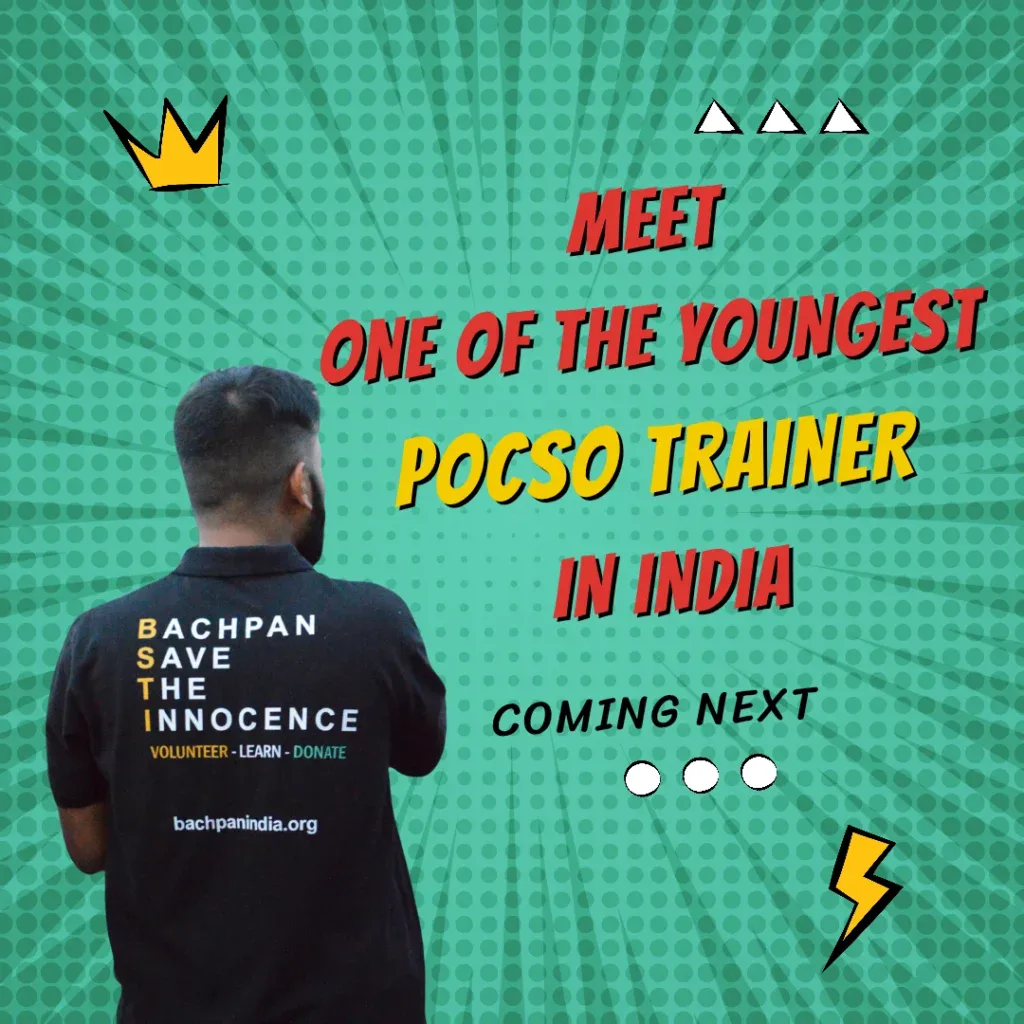
This blog took a deep dive into the POCSO Act and why training across schools, homes, and systems is crucial to truly protect our children.
But there’s more.
In the next part of this series, we’ll introduce you to Bachpan Save The Innocence (BSTI), an NGO making extraordinary strides in child protection. You’ll also meet India’s youngest and dynamic POCSO trainer: the founder of BSTI, who has already trained over 1275+ teachers and principals, leading transformational sessions on POCSO training in Tricity, Delhi, Mathura and beyond. Stay with us as we continue this journey from awareness to lasting change, and discover how one young, dynamic voice is creating a mighty difference.
